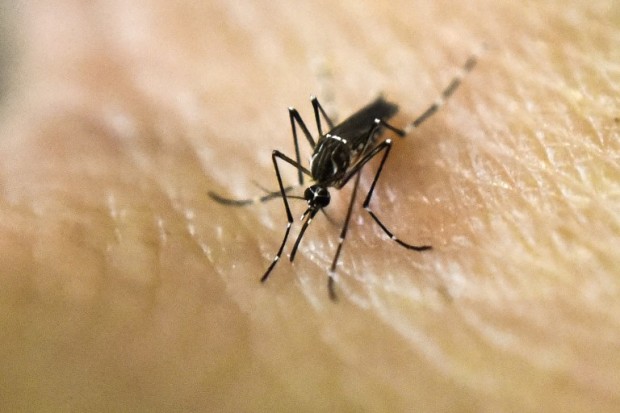Brazil: Zika outbreaks top 91,000 cases

This file photo taken on January 25, 2016 shows an Aedes Aegypti mosquito photographed on human skin in a lab of the International Training and Medical Research Training Center (CIDEIM) in Cali, Colombia. The World Health Organization warned on April 25, 2016 of the potential for a “marked increase” in the number of Zika infections in the coming months, and its spread to new parts of the world. AFP
Brazil’s outbreak of Zika, which has been linked to the devastating microcephaly birth defect in newborns, has topped 91,000 cases, health officials said on Tuesday.
Between January 3 and April 2, 91,387 suspected cases of Zika were reported, with a disproportionate share (30,286) in the poorer northeast of the country, the Health Ministry said.
Three people have died of the mosquito-borne virus, it said.
Despite a flurry of research, very little is known about the virus—how long it can hide out in the human body, the degree of risk via sexual transmission, the full list of diseases and disorders it may cause, and all the mosquito types capable of transmitting it.
Recent scientific consensus is that Zika causes microcephaly, a form of severe brain damage in newborns, and adult-onset neurological problems such as Guillain-Barre Syndrome, which can cause paralysis and death.
Article continues after this advertisementThere is no vaccine or treatment for the virus, which in most people causes only mild symptoms—a rash, joint pain or fever.
Article continues after this advertisementAmong the infected to date have been 2,844 pregnant women.
“So far, it is not possible to determine what percent of Zika-positive pregnant women may have babies with microcephaly,” said Infectious Disease Monitoring director Claudio Maierovitch.
Meanwhile, dengue cases surged to 802,429 or 13.7 percent more than in the same period a year earlier, government data showed.